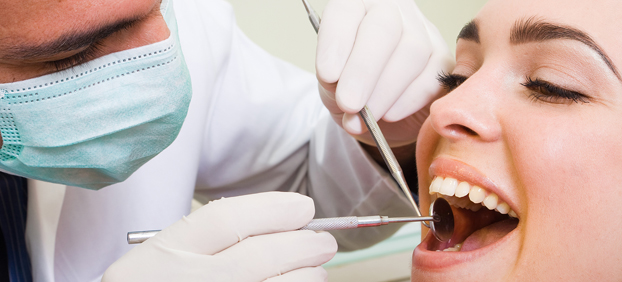What Happens During A Dental Checkup?

Does the idea of visiting a dentist make you nervous? Knowing what to expect from a dental visit can greatly help in relieving anxiety. So, below are a number of things that usually happens during your visit to the dentist.

During teeth cleaning, your dentist or hygienist uses a scaler to remove the tartar above and below your gum line. Or they may use a vibrating device to loosen plaque and tartar and rinse everything with a stream of water. Next, the dentist polishes your teeth with a lightly abrasive paste and finish everything with flossing. This process helps to ensure that plaque will not easily accumulate before your next cleaning.
After your teeth have been thoroughly cleaned, the next process is examining the problem areas in your mouth. Your dentist or hygienist checks behind and between your teeth and gums, and also for softening of tooth enamel and dentin.
They also check for mouth sores, any swelling in the gum areas and redness. Lastly, they measure the periodontal pockets in your mouth. Preferably, the periodontal pocket must only be between 1-3 millimetres deep, but deeper pockets could be a sign of gum disease, which must be monitored closely.
If you are wondering how frequently you must have dental X-rays, then the answer greatly depends on your age, medical and dental history, and current oral health. If you are a new patient, then dental X-rays are often included during examinations.
If needed, dental X-rays are taken at the start of your dental checkup. These X-rays help to identify and diagnose tooth decay in hard-to-reach areas, between teeth and on existing dental work. Dental X-rays can even be useful in determining dental and orthodontic problems beneath gum lines.
The dental exam is not the same as the initial examination done by your hygienist as this is done by a dentist. Usually, your dentist goes through the results of the dental X-rays, check for problems with jaw alignment, teeth grinding and oral cancer. They feel your jaw bones to make sure that you have a smooth bite and there is no clicking or popping from your jaw. The dentist also check the grooves of your teeth to know if they are cracked or smoothed down from jaw clenching or grinding.
After everything is done, your Surrey dentist will then have full knowledge of the overall picture of your oral health is your needs and what treatments that you may need to treat or prevent any problems.
